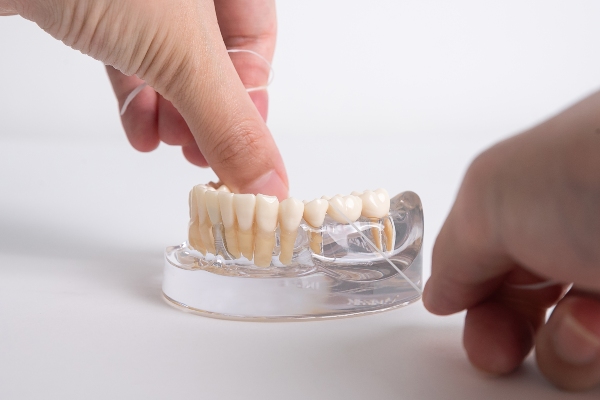3 Important General Dentistry Procedures

General dentistry is an area of care in which professionals focus on the diagnosis, treatment, and management of patients’ overall oral health needs. Treatments can include everything from preventative education to fillings and crowns to root canals. There are a number of common procedures vital for saving smiles.
Common treatments in general dentistry
The most important general dentistry procedures are those that help patients prevent bigger and costlier problems. Most general dentists are equipped to perform these common treatments.
1. Routine cleanings and exams
The most basic of dental care treatments, routine cleanings and exams are an integral part of any oral care regime. During a biannual exam, a dentist assesses the teeth for plaque and tartar buildup, cavities or other signs of decay, and symptoms of gingivitis or gum disease, as well as other issues that the patient may not have noticed.
After thoroughly assessing the teeth for health issues, the dentist can then proceed with a detailed cleaning. The typical process consists of cleaning, polishing, and rinsing the teeth with a fluoridated mouthwash. This clears the surfaces of the teeth of any buildup that could cause future harm.
2. Sealants
Sealants are a useful tool in the world of general dentistry, especially for younger patients. Dental sealants are made of plastic resin and give the teeth an extra layer of protection against cavities and extensive decay. Sealants work by filling in the tiny grooves and crevices of the rear teeth — or those areas that are typically difficult to reach with regular brushing and flossing. Once sealed, these areas are less likely to harbor food particles and other substances that can turn into plaque and eventually eat away at the teeth.
Most dentists reserve sealants for young patients. However, adults can benefit from this extra layer of protection as well. Every patient, regardless of age, has unique needs, and individuals with cavity-prone teeth may find that sealants are the solution to keeping major issues at bay.
3. Restoration procedures
When decay does occur, a dentist may have to perform one or several restoration procedures. Ideally, a patient’s cavity is small enough that a dentist can restore it with a simple filling. These small pieces of material — usually silver amalgam, ceramic, or another metal — are used to “fill” the hollowed-out area where a cavity was. The purpose of the filling is to restore the tooth’s function and integrity so that it can withstand chewing and biting forces.
If a cavity is beyond the point of being fixed with a filling, the dentist may recommend a crown. A dental crown is essentially a cap that the dentist cements into place over a decayed tooth to prevent the tooth from further decaying and to restore its function and form.
Conclusion
General dentistry procedures all have a purpose. If your dentist recommends any of the above or a different procedure, it is likely because it is necessary to preserve the health of your smile.
Request an appointment here: https://www.dentistryforwoodstock.com or call Dentistry for Woodstock at (770) 238-1437 for an appointment in our Woodstock office.
Check out what others are saying about our dental services on Yelp: General Dentistry in Woodstock, GA.
Recent Posts
Regular visits to a general dentist are essential for maintaining optimal oral health. A general dentist is responsible for routine check-ups and cleanings and provides a wide range of services to prevent, diagnose, and treat various dental issues. From preventive care to restorative procedures, a general dentist plays a crucial role in ensuring your teeth,…
Whether you have not visited the dentist in a long time, have never been, or are simply switching general dentists, it is normal to have questions on your mind. Patients often want to ask about their current oral health, such as whether they need to be worried about cavities or persistent tooth sensitivity. They may…
A general dentist is usually the primary caretaker for oral health, providing routine and preventative care. However, some choose only to schedule an appointment once they have an issue they can no longer ignore or self-treat. Either way, a general dentist has many of the services you need to obtain or maintain optimal oral health.The…
A key part of a general dentist's job is helping patients protect their teeth from damage, wear, and decay. Preventing dental problems can help patients save time, trouble, discomfort, and money. Here is a closer look at how general dentists help patients keep their teeth in good condition.General dentists may provide the following preventive services…


